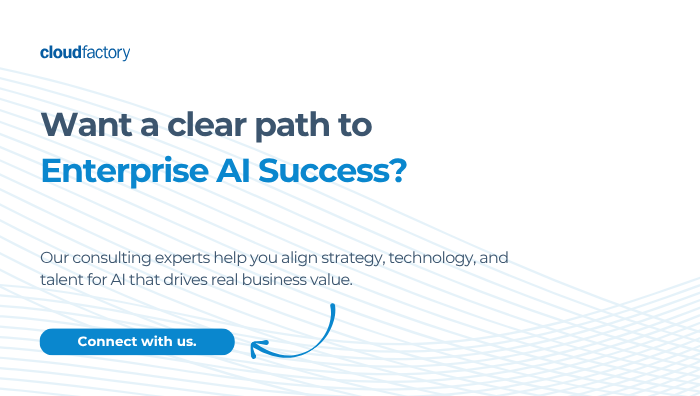Enterprise AI initiatives face a critical challenge that determines their success or failure: handling edge cases. While most AI systems perform well with standard data patterns, it's the unexpected, nuanced scenarios—the edge cases—that separate scalable AI solutions from those that stagnate. For enterprise leaders managing AI deployments across complex organizations, edge case handling represents the difference between AI that delivers consistent value and AI that creates operational headaches.
The stakes couldn't be higher. Organizations investing millions in AI infrastructure need systems that work reliably across all scenarios, not just the predictable ones. Edge cases aren't just technical curiosities—they're business-critical situations that can impact customer trust, regulatory compliance, and competitive advantage.

The Hidden Challenge: Why Edge Cases Derail AI Scaling
Edge cases represent the "long tail" of scenarios that don't fit standard patterns but occur frequently enough to impact business outcomes. According to MIT Technology Review, 80% of AI system failures in production environments stem from scenarios not adequately represented in training data—essentially, edge cases.
The challenge intensifies at enterprise scale. While a startup might handle edge cases through manual intervention, enterprises processing thousands of transactions daily cannot afford such approaches. Consider these risks:
Operational Disruption: When AI systems encounter unexpected scenarios, they often fail silently or produce incorrect outputs. A Deloitte study found that 37% of enterprises experienced significant operational disruptions due to AI system failures in edge case scenarios.
Compliance Vulnerabilities: In regulated industries like healthcare and finance, edge cases often involve sensitive scenarios where compliance is non-negotiable. The FDA has documented numerous cases where AI medical devices failed to handle edge cases, leading to regulatory warnings and market withdrawals.
Customer Trust Erosion: Inconsistent AI behavior in edge cases directly impacts customer experience. Research from Accenture shows that 73% of customers lose trust in brands after experiencing AI system failures, particularly in unexpected situations.
Competitive Disadvantage: Organizations that cannot handle edge cases effectively find themselves limited in market expansion and product innovation. Their AI systems work well in controlled environments but fail when exposed to real-world variability.
Strategic Solutions: Building Edge Case Resilience
Successful enterprise AI scaling requires a systematic approach to edge case handling. Here are five proven strategies that leading organizations use to build resilient AI systems:
1. Implement Comprehensive Data Diversity Programs
Create training datasets that deliberately include edge cases and outlier scenarios. This involves:
- Active data collection from underrepresented scenarios and user segments
- Synthetic data generation to simulate rare but critical edge cases
- Continuous data auditing to identify gaps in representation
2. Deploy Human-in-the-Loop Workflows
Establish inference oversight systems that route edge cases to human experts when AI confidence drops below defined thresholds. This approach ensures:
- Quality maintenance during AI system learning phases
- Expert knowledge capture for future model improvements
- Seamless escalation without disrupting customer experience
3. Build Robust Model Fine-Tuning Processes
Develop systematic approaches to model fine-tuning for trust and reliability:
- Continuous learning pipelines that incorporate edge case feedback
- A/B testing frameworks for edge case handling improvements
- Performance monitoring across diverse scenario types
4. Establish Edge Case Detection Systems
Create automated systems that identify potential edge cases before they cause problems:
- Anomaly detection algorithms that flag unusual input patterns
- Confidence scoring mechanisms that trigger human review
- Real-time monitoring dashboards for edge case frequency and impact
5. Develop Cross-Functional Edge Case Response Teams
Form dedicated teams that combine domain expertise with technical capabilities:
- Subject matter experts who understand business context
- Data scientists who can rapidly adjust models
- Operations specialists who ensure smooth workflow integration
How CloudFactory Enables Edge Case Mastery
Organizations addressing edge case challenges often struggle with scaling solutions effectively while maintaining quality and compliance standards. That's where CloudFactory's managed workforce approach proves invaluable.
CloudFactory specializes in operational AI at scale, providing the human expertise necessary for effective edge case handling. Our managed teams work seamlessly with your AI systems, providing inference oversight and model fine-tuning support that ensures your AI performs reliably across all scenarios. Take our insurance client case study: CloudFactory's managed workforce helps them handle complex edge cases and exceptions, enhancing model accuracy while delivering on customer service SLAs—even when dealing with unusual property types, obscure abbreviations, and non-standard submission formats that would typically confuse automated systems.
Ready to Scale Your AI with Confidence?
Edge case handling isn't just a technical challenge—it's a strategic imperative for sustainable AI scaling. Organizations that master edge case management build AI systems that thrive in real-world complexity, delivering consistent value while maintaining customer trust and regulatory compliance.
Discover how CloudFactory's managed workforce can help you build resilient, scalable AI systems. Contact our team to learn how we've helped enterprises across industries transform edge case challenges into competitive advantages through expert human-in-the-loop workflows.
.png?width=1563&height=1563&name=Untitled%20design%20(38).png)




.png?width=1563&height=1563&name=Untitled%20design%20(30).png)



.png?width=1563&height=1563&name=Untitled%20design%20(33).png)


.png?width=1563&height=1563&name=Untitled%20design%20(34).png)














